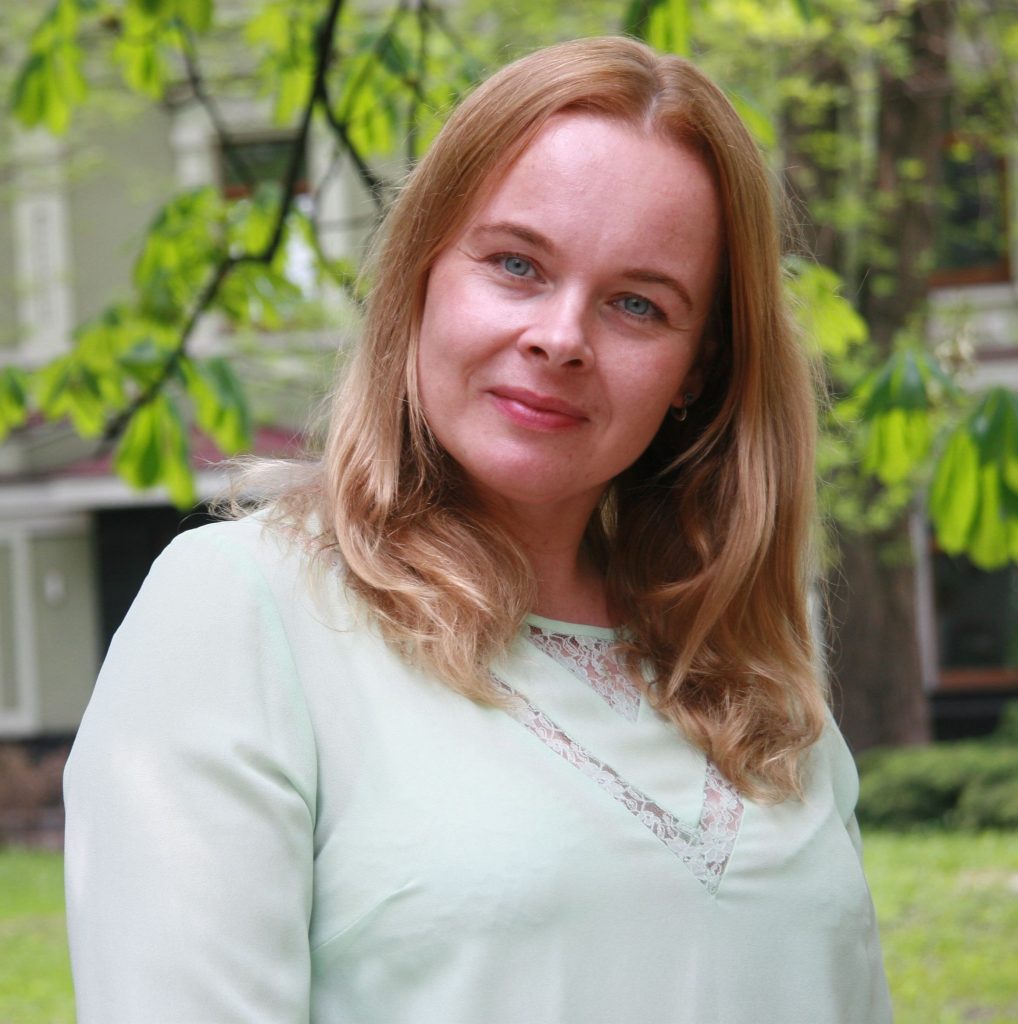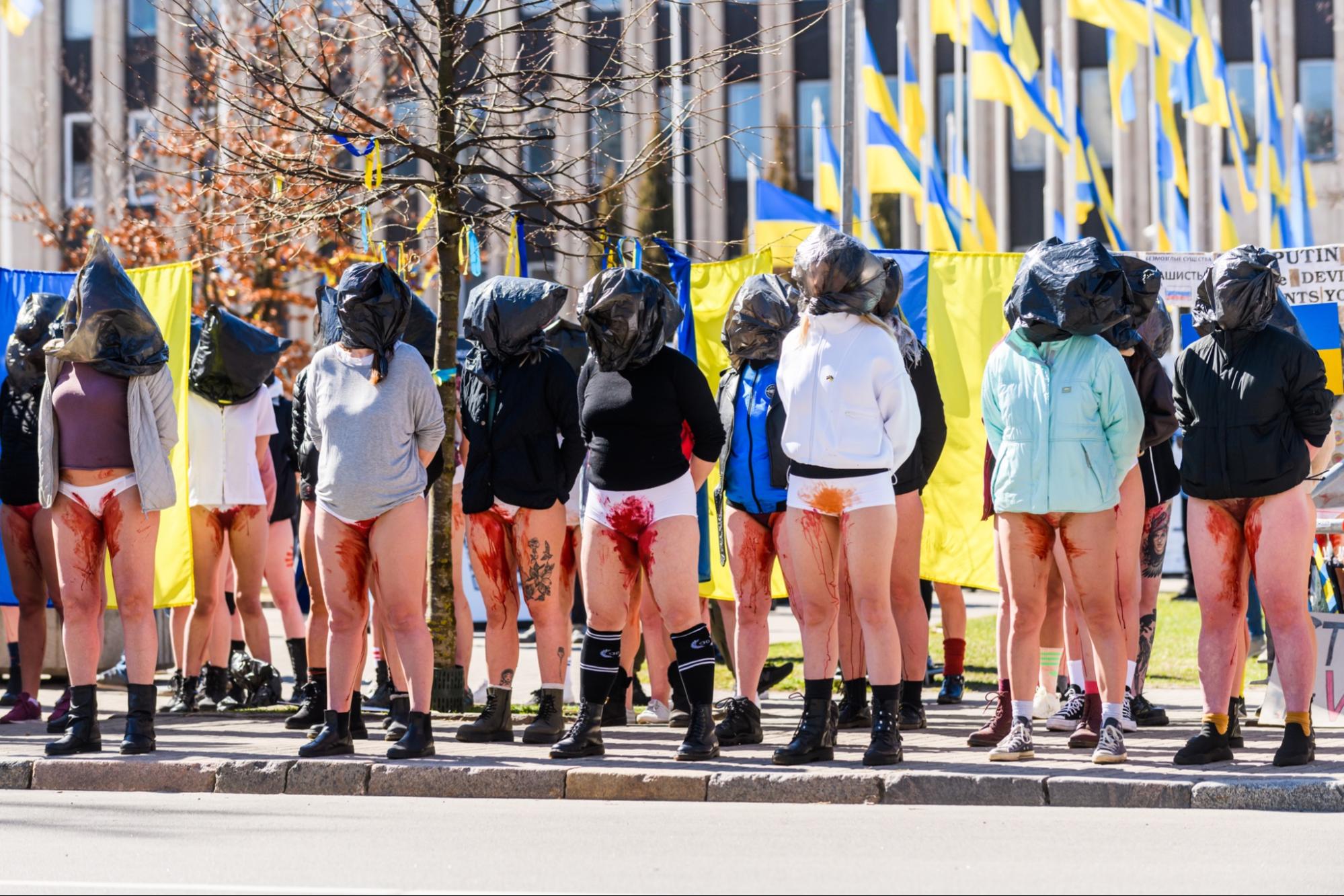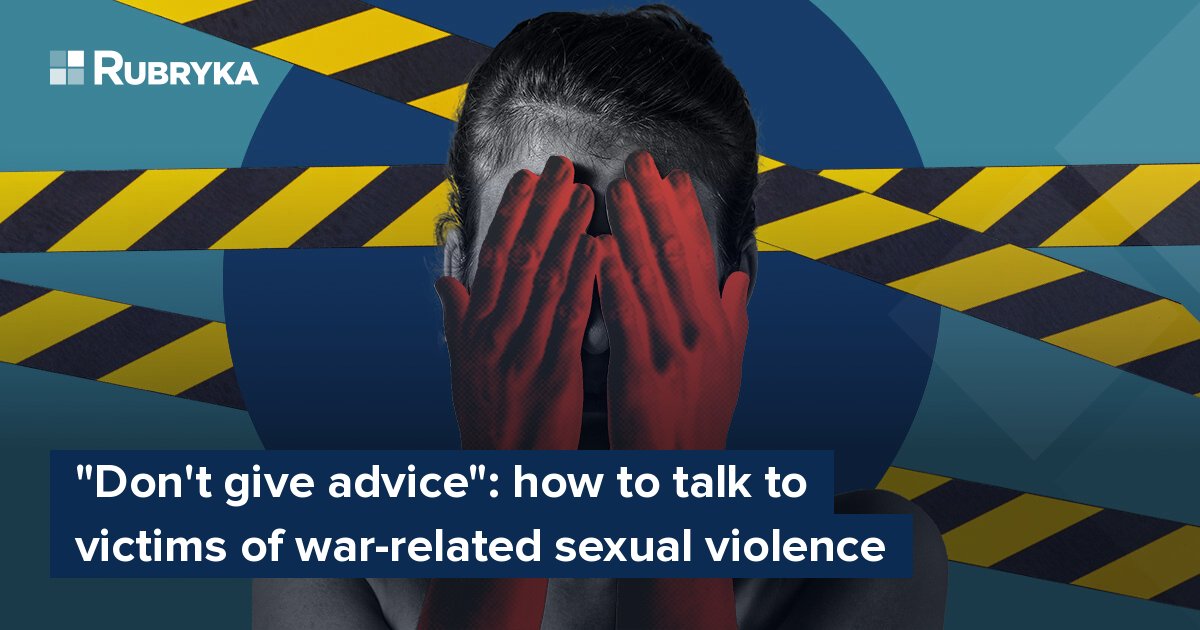
What is the problem?
"Sexual violence during the war is a violation of human rights that accompanies any war and, unfortunately, Ukraine was no exception, " says Kateryna Borozdina, vice president of the public organization La Strada–Ukraine. "The scale of this problem is extensive because only a few victims report, document, and ask for help. Therefore, it is important to talk about it. So that ordinary citizens, victims, and those at risk, such as those currently in the temporarily occupied territories, can have access to an explanation of the very definition of 'war-related sexual violence' and information on where to go for help or crime documentation."
Ukraine's national legislation does not define "war-related sexual violence."
However, several international documents indicate that sexual violence includes not only rape but also sexual crimes of a different nature.
"It can be when the victim is forced to undress in front of the military, observe sexual violence or rape of a third person, or sexual harassment by the army. The spectrum of war-related sexual violence is vast.
Some victims do not identify themselves as victims, for example: 'I was only forced to undress, that is, without violence, but I saw the rape, so I was not injured.' It is essential to convey that all such actions are also sexual violence," Kateryna Borozdina explains.

La Strada–Ukraine Vice President Kateryna Borozdina
What is the solution?
La Strada–Ukraine records the appeals of the victims who contact the National Hotline for the Prevention of Domestic Violence, Human Trafficking, and Gender Discrimination. Hotline numbers are 0 800 500 225 or 116 111, and calls are anonymous and confidential. One can obtain detailed information on a case-by-case basis.
"In the first half of 2022, we received more than 17,000 calls to the hotline. The fewest calls were in March, when the first active period of military operations happened. Then, the number of calls on all issues we consult on decreased by almost half. Now we receive approximately the same number of calls as previously. People call with common issues they had before the war—domestic violence, combating human trafficking, and gender discrimination. Calls from internally displaced persons have resumed; we have been recording them since 2014. Military servicemen and women and their family members are also applying again. And at the same time, the number of appeals from the temporarily occupied territories has somewhat increased," says the NGO La Strada–Ukraine vice president.
Consultations are provided not only by phone but also in text mode through messengers.
"91% of calls out of 17,000,000 were related to deterrence and prevention of domestic violence. It did not go away with the war. On the contrary, there is more violence because people lose their jobs and confidence in the future and acquire psychological instability."

"91% of calls out of 17,000,000 were related to deterrence and prevention of domestic violence. It did not go away with the war. On the contrary, there is more violence because people lose their jobs and confidence in the future and acquire psychological instability. If we talk about appeals from victims of sexual violence, specifically related to the war, we have 23 such appeals regarding 29 cases. That is, one person could report several cases. We understand that, in reality, this figure is certainly higher—not 23 cases for the whole of Ukraine. It is a question of identification and a request for help, " says Kateryna Borozdina.
The organization received the first flurry of calls after the de-occupation of the Kyiv region:
"We are now receiving single calls from the south of Ukraine and the territories de-occupied as of today."
As Kateryna Borozdina says, not only victims but also witnesses of sexual violence call the hotline.
"After all, a witness to sexual violence is also a victim of sexual violence. Once a woman called and said that she saw the rape of several underage girls in a bomb shelter that the russian military had broken into. That is why we are talking about the fact that this woman should also have psychological help to understand that it is not her fault. She could not help anyone. Even calling and informing that such crimes are taking place is a certain help in recording these crimes," says Borozdina.
A person of any age can become a victim of war-related sexual violence. And anyone can report a crime, regardless of age.
How does it work?
As Kateryna Borozdina says, when communicating with the victims, it is worth knowing that in no case can a person be blamed for what happened:
- "Many victims say they are to blame, shifting the responsibility onto themselves. In no way can you belittle this crime by saying, for example, 'she is alive and well.' This leads to re-traumatization. The psyche of all people is different, and everyone experiences trauma differently. After a particular time, a person can look wholly balanced and calm, but it does not mean that after a week/month/year, this will not become a psychological consequence when they cannot cope with their emotions. Therefore, it is important not to devalue the situation and not to blame the victim. They should receive support, but without imposition. If friends, acquaintances, and witnesses consider specific actions correct, this does not mean that the affected person will also consider them so. If the victim is not ready to consult with a psychologist or contact law enforcement to investigate the crime, they cannot be forced. We can explain to the victims that there is such an opportunity, but we should not impose it by force.
- Psychological support is vital, but don't use phrases like 'I understand you,' 'If I were in your position…' After all, a person who, for example, has been raped and a person who has not experienced this have different feelings. You may understand how terrible it is, but you will not understand how an affected person experiences it. It is better to use words of agreement when communicating with the affected person, such as 'yes, it must have been tough,' 'your story is terrible,' or 'anyone would be scared in a situation like this.' That is, use neutral phrases instead of taking on the role of a victim."
Should the support for women, men, and children who have been sexually abused be different?
The way sexual violence is reported during the war and the degree of latency between men and women are different, says Kateryna Borozdina.
"It is much more difficult for a man to talk about a case of rape or other sexual violence. Sexual violence and rape have always been latent phenomena, and not everyone reported them. The latency is even higher if we talk about war-related sexual violence."
At the same time, psychological counseling as a supporting element for women and men will differ.
"It is important to say to a man that such a crime has taken place against him, but life does not end there. Approaches to counseling children, women, and men differ. As for children, information should be presented with children's logic and vision," says the vice president of the public organization La Strada–Ukraine, Kateryna Borozdina.
Of all appeals by victims of sexual violence to the La Strada–Ukraine hotline, the share of men is several percent.
"However, the majority of women seek advice on issues of humanitarian assistance, travel abroad, and restoration of documents. And only during the conversation can it be discovered that she suffered from sexual violence or was raped," Borozdina explains.
How does it not work?

First, Kateryna Borozdina emphasizes specialists who work with cases of sexual violence committed during the war should not forget one should never share that information about the crime with outsiders.
"Yes, the case will not be completely anonymous because if, for example, it became known to the doctor, then they must inform the police or the prosecutor's office about it. But all this is exclusively within the scope of fulfilling one's professional duties. You can't talk about cases of sexual violence, even impersonally. Because the victim can recognize themselves even by details, and with this, we will violate confidentiality, " says Borozdina.
As for the immediate environment of the victim, they should not encourage the person to talk.
"Some people think that if a person speaks out, it will be easier for them. No, it's up to the victim. But if the victim themselves spoke out, then they should be allowed to express themselves," says Kateryna Borozdina.
To speak out or not is a choice exclusively of the person who suffered sexual violence.
"It is also important not to give advice. The same information can be presented as advice or providing information. When communicating with victims of sexual violence, it is necessary to choose the method of providing information. After all, advice is usually what a person can suggest from their experience. But providing information means you can give the contacts of psychologists we know. You can offer to contact the police or the prosecutor's office. You can offer the La Strada–Ukraine hotline with professional psychologists, who will find an approach to each victim," says the organization's vice president.
Even more helpful solutions

Protest against sexual violence committed by russians in Ukraine, in Riga, Latvia. April 2022
"If you suspect that a person has been raped, but they do not talk about it, then you cannot impose an opinion on them so that they speak. Even greater distancing will most likely be activated," Kateryna Borozdina explains. "In elementary terms, you can look for the phone numbers of organizations dealing with this topic and leave their contacts somewhere on the table or give the person their business card. If we are talking about a close person whose temperament we know, we should also consider the best ways to speak about it with the victim's character in mind. There are no typical recommendations for everyone. Each person has their characteristics. It is necessary to analyze and think over phrases that can work in the situation."
If a person has witnessed sexual violence, they should try to help the victim find a safe place afterward.
"A witness can also see that the victim needs medical help. Due to fear and a depressed psychological state, the victim often does not understand that they need medical help, so witnesses can provide at least first aid if possible. A witness is a person who can help victims navigate the situation. In such cases, the actions of a witness can save lives," says the vice president of the public organization La Strada–Ukraine, Kateryna Borozdina.
In the case when a person has confided and said that they had been sexually abused, you can act as follows:
"Together, look for resources that provide help. It can be provided through online consultations and personal meetings with a specialist. Talk to the victim at their convenience. You can offer to go together to the police or prosecutor's office to write a statement. Depending on the closeness of the relationship, think through the steps needed to make it more acceptable for the person."
No one will understand what the victim went through. Therefore, it is their right to choose the circle of help they deem necessary for themselves.
This article was prepared as part of the project by the NGO La Strada–Ukraine and the NGO Women in Media with International Media Support (IMS).








